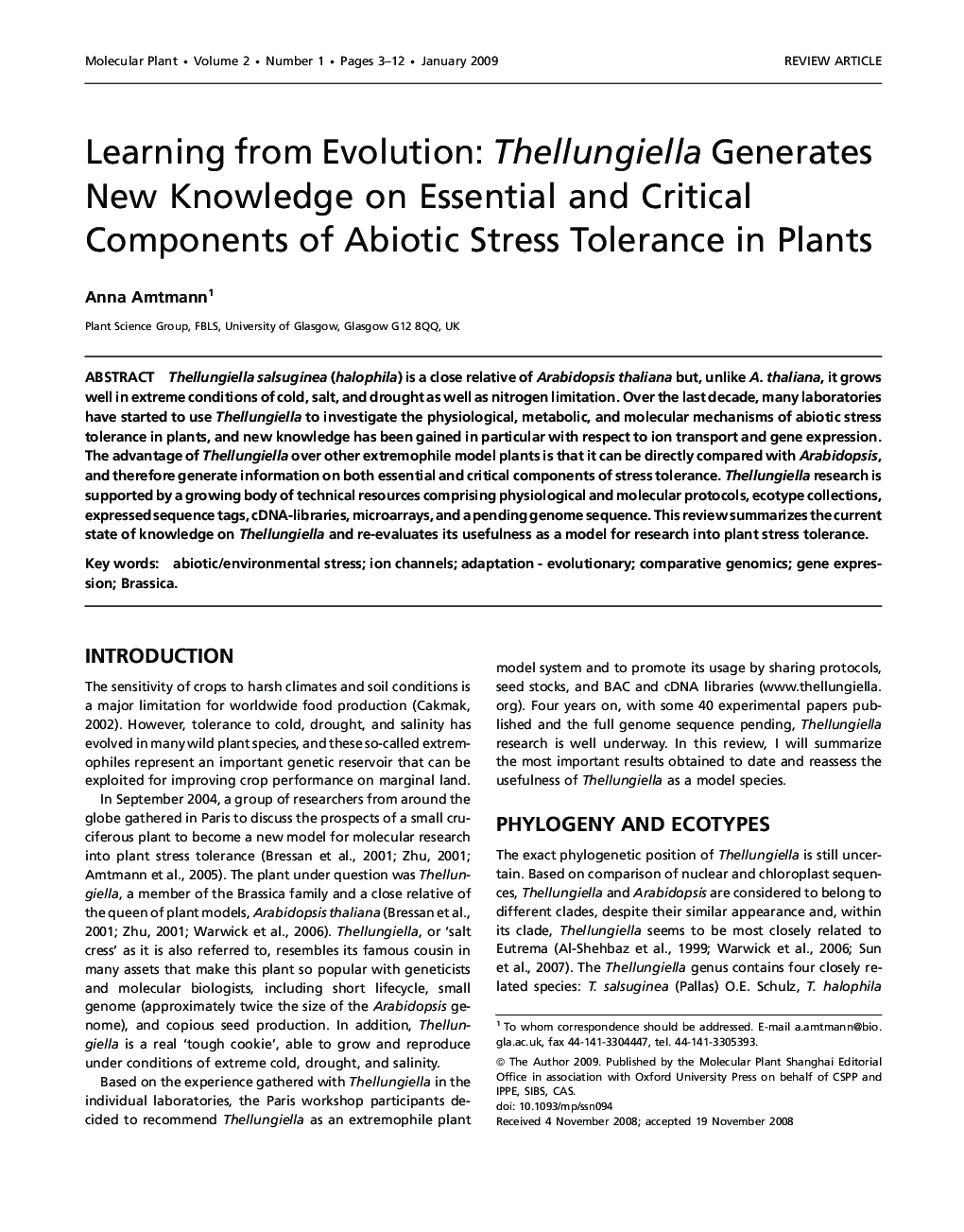| Article ID | Journal | Published Year | Pages | File Type |
|---|---|---|---|---|
| 4570408 | Molecular Plant | 2009 | 10 Pages |
ABSTRACTThellungiella salsuginea (halophila) is a close relative of Arabidopsis thaliana but, unlike A. thaliana, it grows well in extreme conditions of cold, salt, and drought as well as nitrogen limitation. Over the last decade, many laboratories have started to use Thellungiella to investigate the physiological, metabolic, and molecular mechanisms of abiotic stress tolerance in plants, and new knowledge has been gained in particular with respect to ion transport and gene expression. The advantage of Thellungiella over other extremophile model plants is that it can be directly compared with Arabidopsis, and therefore generate information on both essential and critical components of stress tolerance. Thellungiella research is supported by a growing body of technical resources comprising physiological and molecular protocols, ecotype collections, expressed sequence tags, cDNA-libraries, microarrays, and a pending genome sequence. This review summarizes the current state of knowledge on Thellungiella and re-evaluates its usefulness as a model for research into plant stress tolerance.
